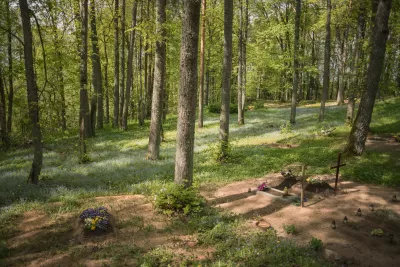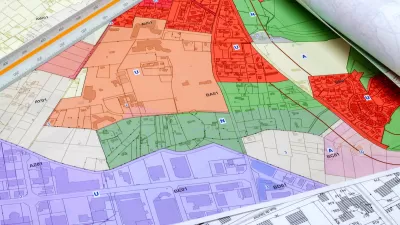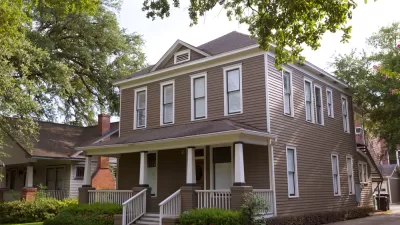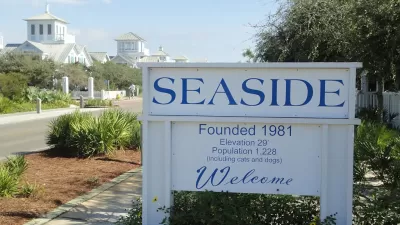Brooks Township in Michigan ran afoul of the state constitution when it instituted a blanket cemetery ban with the intent to block a green cemetery.

A Michigan judge has ruled a township ordinance that banned all new cemeteries is unconstitutional, reports an article from regional news outlet Wood News 8. Brooks Township (pop. 3,500) instituted a ban on new cemeteries in June 2023, after Peter and Annica Quakenbush bought land with plans to start a green cemetery business the year prior. The couple says they were actively seeking a special land use permit when the township passed the new ordinance, which led them to sue, alleging the ordinance specifically targeted their business in violation of the state constitution.
At a August 15 hearing on the township’s motion to dismiss the case, the Newaygo County Circuit Court judge instead said he was going to rule the new cemetery ban unconstitutional, according to News 8 reporter Rachel Van Gilder. A Brooks Township supervisor told the news outlet that the township intends to appeal.
At the heart of the lawsuit is a 20-acre property that the owners intend to turn into a green conservation burial ground, “where bodies would not be embalmed and would be buried in biodegradable caskets and clothing.” Township officials say the township’s main concern is nearby residential wells, which the property owners have not addressed. “Annica Quakenbush previously said the health department found the site is far enough from water for burials to be safe, but Nelson countered in his email to News 8 that there has not been a study conducted on how the cemetery could affect the watershed,” according to the News 8 article. While environmental concerns are a valid reason to reject an application, a statement from the Institute for Justice says the township ran afoul of the state constitution when it passed a blanket ban on all new cemeteries with the intent of blocking a specific project. The action violated the property owners’ state-granted right to open a business that does not harm the public.
FULL STORY: Judge finds cemetery ban unconstitutional, advocates say

Maui's Vacation Rental Debate Turns Ugly
Verbal attacks, misinformation campaigns and fistfights plague a high-stakes debate to convert thousands of vacation rentals into long-term housing.

Planetizen Federal Action Tracker
A weekly monitor of how Trump’s orders and actions are impacting planners and planning in America.

In Urban Planning, AI Prompting Could be the New Design Thinking
Creativity has long been key to great urban design. What if we see AI as our new creative partner?

King County Supportive Housing Program Offers Hope for Unhoused Residents
The county is taking a ‘Housing First’ approach that prioritizes getting people into housing, then offering wraparound supportive services.

Researchers Use AI to Get Clearer Picture of US Housing
Analysts are using artificial intelligence to supercharge their research by allowing them to comb through data faster. Though these AI tools can be error prone, they save time and housing researchers are optimistic about the future.

Making Shared Micromobility More Inclusive
Cities and shared mobility system operators can do more to include people with disabilities in planning and operations, per a new report.
Urban Design for Planners 1: Software Tools
This six-course series explores essential urban design concepts using open source software and equips planners with the tools they need to participate fully in the urban design process.
Planning for Universal Design
Learn the tools for implementing Universal Design in planning regulations.
planning NEXT
Appalachian Highlands Housing Partners
Mpact (founded as Rail~Volution)
City of Camden Redevelopment Agency
City of Astoria
City of Portland
City of Laramie





























